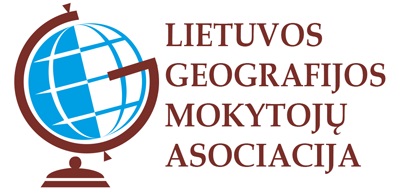Reading skills - THE PEOPLE
Klausimas #1
THE PEOPLE
Did you know that Australia is thirty times bigger than Great Britain? Only seventeen million people live there. However, ninety percent of them live on the coast, therefore the centre is almost empty.
The Aborigines are the native people of Australia. Today, only 1.5 per cent of the population is Aboriginal. Before the British arrived, the Aborigines were able to survive by living off the land. They used plants for medicine and hunted. When British immigrants, (including convicts) started to settle in Australia in 1788, they killed plants and animals that were important to the Aborigines. They also killed many of the Aborigines and took their land. The Aborigines had to live in poverty and had many problems. Many were alcoholics or committed crimes because they were not able to adjust to 'white man's' life.
In the last thirty years, Aborigines have joined together to protest. In 1967 they won the right to vote and the Australian government returned some land to them. In cities, many of the places where the Aborigines live are old and dirty therefore the Aborigines are still protesting for equality.
Some Aborigines live very traditional lives. They live on the land and they speak an Aboriginal language. Adults teach their children things through stories and paintings. Aborigine society has many rules. For example, they must not say a name of a dead person. At an initiation ceremony, when they become adults, they must promise to keep the tribal secrets of their group. Other Aborigines have less traditional lives and go to normal schools.
Aboriginal culture has become more popular recently. The Aboriginal group Yothu Yindi are one of the most popular bands in Australia.
Apart from the Aborigines, people have come from all over the world to live in Australia so it is a very multicultural society. For example, there are more Greeks in Melbourne than in any Greek city apart from Athens and Thessalonika. In Melbourne it is possible to find more than forty-two nationalities in some districts.
Atsakymų variantai rodomi tik registruotiems sistemos eTest.lt vartotojams. Mokytojo registracija, mokinio registracija
Taškų skaičius už teisingą atsakymą: 1
Klausimas #2
THE PEOPLE
Did you know that Australia is thirty times bigger than Great Britain? Only seventeen million people live there. However, ninety percent of them live on the coast, therefore the centre is almost empty.
The Aborigines are the native people of Australia. Today, only 1.5 per cent of the population is Aboriginal. Before the British arrived, the Aborigines were able to survive by living off the land. They used plants for medicine and hunted. When British immigrants, (including convicts) started to settle in Australia in 1788, they killed plants and animals that were important to the Aborigines. They also killed many of the Aborigines and took their land. The Aborigines had to live in poverty and had many problems. Many were alcoholics or committed crimes because they were not able to adjust to 'white man's' life.
In the last thirty years, Aborigines have joined together to protest. In 1967 they won the right to vote and the Australian government returned some land to them. In cities, many of the places where the Aborigines live are old and dirty therefore the Aborigines are still protesting for equality.
Some Aborigines live very traditional lives. They live on the land and they speak an Aboriginal language. Adults teach their children things through stories and paintings. Aborigine society has many rules. For example, they must not say a name of a dead person. At an initiation ceremony, when they become adults, they must promise to keep the tribal secrets of their group. Other Aborigines have less traditional lives and go to normal schools.
Aboriginal culture has become more popular recently. The Aboriginal group Yothu Yindi are one of the most popular bands in Australia.
Apart from the Aborigines, people have come from all over the world to live in Australia so it is a very multicultural society. For example, there are more Greeks in Melbourne than in any Greek city apart from Athens and Thessalonika. In Melbourne it is possible to find more than forty-two nationalities in some districts. Which statements are true (YES) and which are false (NO)?
Atsakymų variantai rodomi tik registruotiems sistemos eTest.lt vartotojams. Mokytojo registracija, mokinio registracija
Taškų skaičius už teisingą atsakymą: 1





